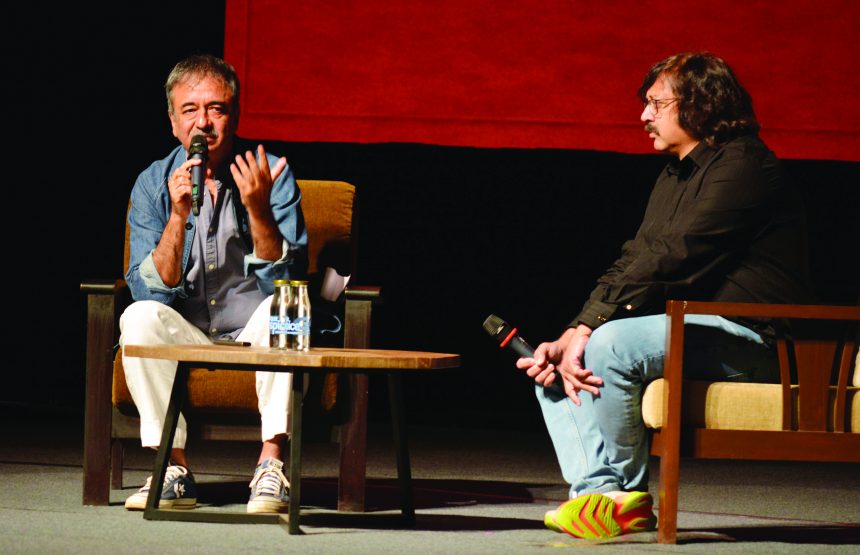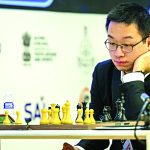NT BUZZ
While addressing the masterclass cum workshop on the theme, ‘Film is Made on Two Tables- Writing and Editing: A Perspective’, Raju Hirani began by capturing the essence of the writing process with poetic simplicity: “Writing is a place of dreaming.” He described how the writer enjoys boundless freedom—unlimited skies, perfect sunrises, flawless actors, no budgets, and no constraints. But the moment these imagined scenes reach the editor’s table, reality inevitably transforms them.
“A film begins,” Hirani noted, “only when a character truly wants something. That desire becomes the heartbeat of the narrative. And conflict is oxygen—without it,
nothing breathes.”
He urged writers to ground their stories in lived experience. “A good writer must pick triggers from life. Real experiences make stories incredible, unique, and deeply appealing,” he said. He also reminded the audience that exposition should be woven invisibly into drama, and that the theme, the film’s soul must whisper consistently beneath every scene.
Speaking with warmth about his first love—editing, Hirani illuminated the editor’s profound yet hidden power. “When the footage reaches the editing table, everything becomes different,” he said. “The editor reimagines the story. He is the unsung hero. His work is invisible, but it holds the
film together.”
Describing the editor’s toolkit, he explained that the unit of editing is the shot, and a single shot, placed in a different context, can completely transform meaning. “An editor can flip a story 180 degrees,” he said.
Quoting early cinema pioneers, Hirani recalled DW Griffith’s famous idea that “a good editor plays with your emotion.” He closed this segment with a striking truth that resonated across the room: “The writer writes the first draft. The editor writes the last.”
Hirani stressed that antagonists must possess as strong a point of view as protagonists. “Every character believes they are right. That is where the story’s electricity comes from. This clash of truths, this tension between perspectives, is what gives a narrative its pulse,”
he added.
Screenwriter Abhijat Joshi meanwhile reflected on the extraordinary power of real-life memories in storytelling. He explained that certain moments—whether hilarious, heartbreaking, or startling—remain etched in our minds for decades, and therefore carry an authenticity that scripted inventions often cannot match. Many such recollections, he revealed, later found their way into ‘3 Idiots’, including the famous electric-shock gag and several subtle character details drawn from people he had observed over the years.
Joshi stated that with timeless screenwriting truths: every character must have a compelling want, conflict is the oxygen of cinema, and the strongest drama arises when two valid, opposing truths collide.



